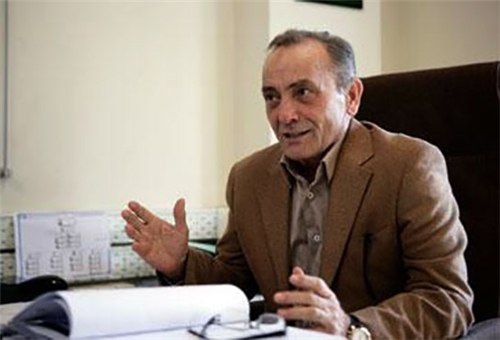 TEHRAN (FNA)- A member of the committee which has been appointed by the Oil Ministry to revise oil contracts said that the ministry's new contracts must be drawn up based on a win-win approach.
TEHRAN (FNA)- A member of the committee which has been appointed by the Oil Ministry to revise oil contracts said that the ministry's new contracts must be drawn up based on a win-win approach.The National Iranian Oil Company (NIOC) must view foreign companies and investors as partner and not contractor. The contracts must be also drawn up [based on] win-win, Nasrollah Espiari told Shana in an interview.
The key point in the methods of developing hydrocarbon fields in different countries is the structure of contract the relevant ministry or body drafts for exploration, development and operation with domestic and foreign companies, he said.
Moreover, foreign parties always expect the risks and rewards they accept in the contracts to be reasonable and appropriate, particularly the rate of return of capital must be more and the duration of return must be shorter so that they will be able to buy more stocks in their own countries stock markets and provide the necessary financial resources and fund, he added.
The contracts should be drawn up so as to be compatible with the Islamic Republics laws, be attractive and serve the interests of both sides (investor and outsourcer, Espiari said.
Espiari, a former managing-director of National Iranian South Oil Company, said the oil contracts revision committee is comprised of jurists, financial and technical experts, adding that the contracts will be similar to technical services contracts (TSC) or buy-back, but with more reasonable attractiveness in them than the previous contracts.
He said in the new contracts being drafted by the committee, risks are lowered particularly in the exploration phase, the investors capital returns more quickly, local contents are used further and the contracts duration is longer.
This type of contracts is forecasted to be more attractive than the previous contracts for investors, said Espiari, a former senior oil manager.
Merely using buy-back, production sharing contracts or technical services contracts will not serve our interests. Sometimes, signing a production sharing contract with the help of a technical and legal team well familiar with the details of contracts could prove much better than an inappropriate buy-back contract, he added.
Regarding production sharing contracts, Espiari said that these contracts are often signed between the government and a company or a consortium of companies. Under these deals, in case the project comes to fruition, the contractor will be reimbursed the costs and also receive a share in production.
Under these agreements, oil and gas reservoirs remain in the hands of host government, he said.
Espiari said 60 to 65 percent of the contracts used in the oil and gas industries are concessional, 30 to 35 percent are production sharing contracts and two percent are service contracts.
He noted that in Iran, there is no legal restriction for using production sharing contracts.
Espiari recommended that development of at least two hydrocarbon fields which Iran shares with neighbors be awarded to a consortium of Iranian and foreign companies under a production sharing contract.
I prefer production sharing contracts, specifically for joint fields and fields located in Zagros and are high-risk, because they are more flexible and attractive than the current contracts and the contractor is present until production starts and will supervise recovery. Moreover, the contract will work more effectively in the transfer of new technology and knowledge, he said.
The flexibility of proposed contracts depends on such effective factors as shared status of the field, geological complications, level of risk as well as volume and quality of reserves. Therefore, production sharing contracts, technical services contracts or buy-backs have no preferences per se and depending on the conditions of the field, the most attractive contract could be proposed to the contractor, said Espiari.
The type and contents of the contract are also important and we can draft the production sharing contract so as to guarantee our interests as the European and Americans do now, he said.
By Fars News Agency
The Iran Project is not responsible for the content of quoted articles.











